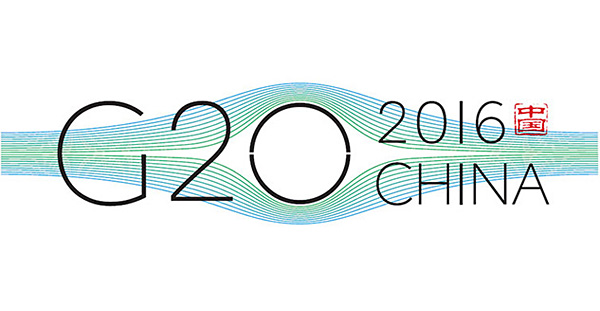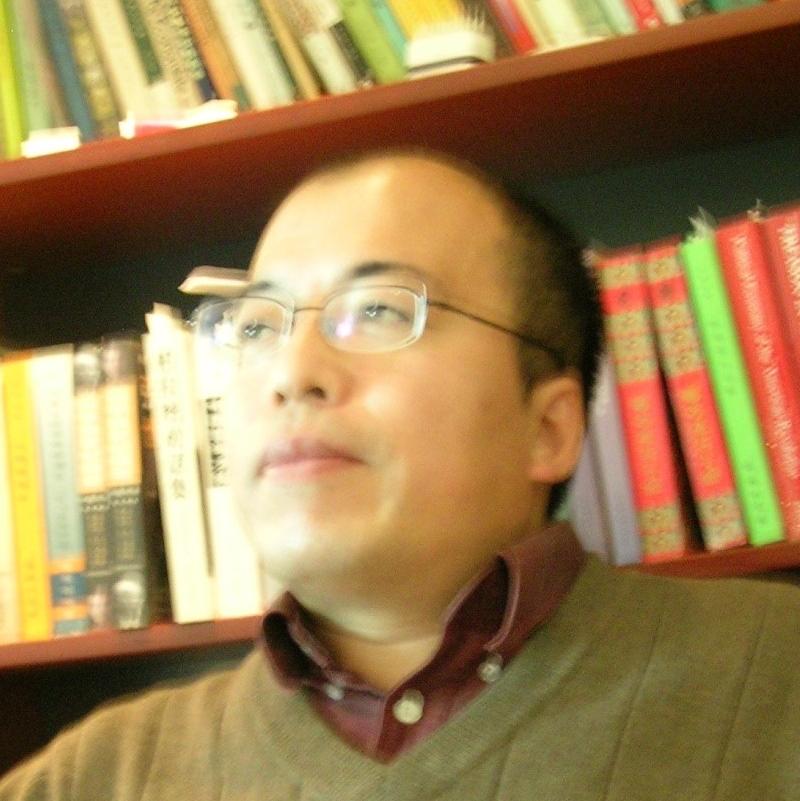The much-anticipated 11th G20 Summit will take place in China’s Hangzhou on Sept 4 and 5. President Xi Jinping will host the gathering with leaders of the other G20 members, leaders of a number of developing countries invited by China, and top officials of international organizations to discuss matters important to global economic cooperation. By going all out to prepare for the event at this moment of worldwide chaos, China has demonstrated its growing sense of responsibility as a major global power.

Logo of G20 Hangzhou Summit incorporates the design of a bridge representing a spirit of growth, cooperation, and optimism for the future.

Bridge on the West Lake in Hangzhou
One, the worldwide lack of order is illustrated by five complex and interconnected variables that are changing or reshaping global and regional landscapes:
The first is aggravation of global power imbalance caused by events such as the unexpected “Leave” win in the Brexit referendum in the UK, the political turmoil and economic depression in BRICS member Brazil, and EU’s fraying unity and dwindling influence.
The second is increasing difficulty in global economic recovery. The selfish conduct of major Western powers has effectively sapped the globalization process, giving rise to fierce debates on rules that govern the world. Monetary policies of the major economies are contradictory, making desired synergy elusive. The US, by vigorously pushing the TPP and TTIP, is trying to build a “fence of rules” against the emerging countries. The downward pressure on the world economy continues to mount with the IMF and others scaling down their global growth forecasts constantly.
The third is unbridled perpetration of ISIS and other extremist groups and the spread of terrorism around the world. Taking advantage of the refugee crisis, ISIS is stepping up its penetration of Europe with a great deal of success.
The fourth is rising populism in a large number of Western countries, evidenced by widespread anti-immigrant, anti-globalization and other radical sentiment. The ongoing US presidential election campaign is most incredible, with Donald Trump securing the Republican nomination and vigorously advocating “America first”, trade protectionism and self-imposed isolation by way of shirking international responsibilities.
The fifth is rising geopolitical rivalry of major world powers. The US is throwing its weight around and trying to fish in troubled waters. In Europe, the US has gotten its European allies to pressure Russia on the issue of Ukraine while taking steps to beef up NATO. Russia, on the other hand, has intervened in the Syrian crisis with handsome gains. With Turkey making a diplomatic turnaround after the failed coup, the Mideast has become a theater showing a more assertive Russia making inroads and a weakening US in retreat. Two hot spots stand out in the Asia-Pacific — the US-sponsored deployment of the THAAD missile-defense system in ROK and a self-styled freedom of navigation farce by the US in the South China Sea, both designed to contain China.
With all of the above, we can say that none of the previous G20 summits will match the Hangzhou Summit in terms of complexity of background.
Two, with China going all out to prepare for the event, the G20 Hangzhou Summit is likely to become one of the best in history.
Against the backdrop of exceptional complexity in the world, China, as host of the 2016 G20 Summit, has chosen to press forward and provide the gathering with a thoughtful, targeted and ambitious program.
In China’s view, the summit should focus on the world’s core challenges and salient problems, taking on the “symptoms” in order to stabilize global growth and working on the “root causes” in order to search for long-term growth drivers. This is designed to transform G20 from being a mechanism of “crisis management” to one that can govern with long-term effectiveness, promoting global growth and international cooperation in the economic field.
To that end, China has proposed that “Towards an Innovative, Invigorated, Interconnected and Inclusive World Economy” be the theme of the Hangzhou Summit and set “exploring more efficient growth models through innovation, improved global economic and financial governance, stronger international trade and investment, and inclusive and interconnected paths of development” as principal items on the agenda. Both the theme and agenda items have been warmly received by G20 membership.
China is determined to work with other G20 members to achieve the following 10 results: formulating the “G20 Blueprint for Growth-Related Innovation”; formulating an action plan to implement the UN’s 2030 Agenda for Sustainable Development; formulating the priority areas, guiding principles and target system of structural reform; formulating the strategy for global trade growth; formulating the guiding principles for global investment policies; deepening reform to the international financial institutional framework; initiating a three-in-one anti-corruption cooperation (institution, education and supervision); launching the cooperation initiative in support of industrialization in Africa and the least-developed countries; formulating an action plan for business startups; and promoting the earliest possible coming into force of the Paris Agreement on Climate Change.
Three, with the US attitude towards the G20 and Washington’s China policy becoming less positive in recent years, the Hangzhou Summit may instill greater harmony in China-US relations.
There has been a noticeable change of US attitude toward the G20. When global financial crisis first struck in 2008, the US desperately needed a helping hand from the emerging countries, so it launched the G20 summit in September that year. Eight years later, the US seems to have forgotten the painful experience and has begun to push them away while still asking for their help.
Increasingly aloof to reforms of the global economic governance system, the US fears it will lose its traditional dominance and goes around introducing new, West-dominated regimes that exclude countries like China.
Under such circumstances, the G20 Hangzhou Summit may bring about a much-needed new opportunity for China-US cooperation. In his telephone conversation with U.S. Secretary of State John Kerry on Aug 5, Chinese Foreign Minister Wang Yi said that the forthcoming meeting in Hangzhou between President Xi Jinping and President Obama would be a top highlight in bilateral relations. He further called for joint efforts to stay focused on the right direction of a new model of major-country relationship, working for closer cooperation, effective management of differences and a successful meeting of the two presidents and ensuring a steady and sound development of China-US relations in the US election year. Secretary Kerry agreed that the meeting would be critically important and pledged coordinated US efforts to ensure its success.
The G20 Summit in Hangzhou, in my view, will help alleviate current problems in a troubled world and become yet another milestone of a rising China. The summit may usher in a new era of global governance in which China will emerge as a leader with the world’s major powers, old and new, working together for common benefit.



